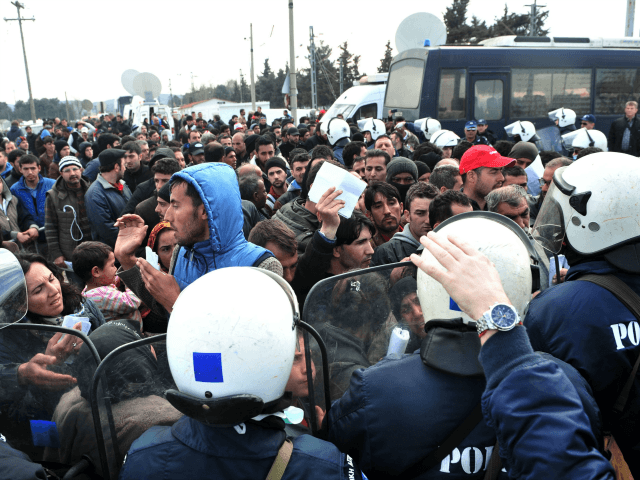BRUSSELS (AFP) – The European Union (EU) will unveil plans to overhaul its asylum system this week following a controversial migrant deal with Turkey, but the proposals look set to trigger fresh rows in a bloc already deeply divided by the refugee crisis.
The current “Dublin rules” place a huge burden on the main migrant entry points like Greece as they say refugees must claim asylum from the first country they arrive in, and should be returned there if they move on somewhere else.
The system has been rendered effectively obsolete by the huge flow of humanity drawn to wealthy Germany by Chancellor Angela Merkel’s open door policy for Syrian refugees.
But introducing a more centralised system for sharing out refugees around the European Union is likely to be tough, with many states too worried about immigration to show much solidarity with those on the front line.
Having pushed back the announcement from last month, the European Commission will on Wednesday lay out a series of “possible options” before setting out a formal proposition to reform the asylum system later in the year.
“Dublin was not designed as a solidarity instrument for ensuring an equitable responsibility sharing among member states,” EU migration commissioner Dimitris Avramopoulos said in December.
“This dimension must be added, as the current uneven distribution is clearly unsustainable.”
The vast majority of the record 1.25 million asylum-seekers arriving in Europe last year entered Greece after taking the dangerous sea route from Turkey, the gateway for people fleeing wars in Syria, Iraq and Afghanistan.
More than 4,000 migrants have drowned since the start of last year.
Under an aid-for-cooperation deal clinched last month with the EU, Greece is due to start sending back to Turkey all migrants on Monday, including Syrians who crossed the Aegean Sea illegally.
In return, EU countries will start resettling one Syrian refugee from Turkey for each one Ankara takes back from Greece, and European leaders hope it will ease the bloc’s biggest refugee crisis since the end of World War II.
– ‘Dublin process obsolete’ –
Amnesty International has accused Turkey of illegally forcing groups of Syrians to return to their war-torn country, denouncing “the fatal flaws” in the EU-Turkey deal. Ankara rejected the claims on Saturday, saying they “do not reflect reality in any way”.
So far European countries have struggled to carry out even the most modest plans tackle the crisis.
EU diplomats said they feared plans to reform the Dublin rules could face the same fate that has befallen a widely resisted plan eventually adopted last September to redistribute 160,000 asylum seekers from Greece and Italy around the EU.
Just 1,100 have been relocated so far out of that number, making a mockery of the principles of European solidarity that Avramopoulos and other European officials have invoked.
European sources blame the delays on a series of factors: governments trying to screen jihadists in the wake of the Paris and Brussels attacks, a lack of housing and education for asylum seekers, and logistical problems over chartering planes.
They say some countries are setting unacceptable conditions by refusing Muslims, black people or large families, with Eastern European states the worst for discriminating on religious or racial grounds.
Under Dublin rules, member states can send asylum-seekers back to the country of first entry and Brussels called on Athens in February to improve conditions to host them.
A ruling by the EU’s top court in 2011 at the height of Greece’s debt crisis said conditions for asylum seekers in Greece were degrading, meaning that other countries could not send them back.
Impetus for reform of the EU asylum rules grew in October when German Chancellor Angela Merkel said “let’s be frank. The Dublin process, in its current form, is obsolete.”
Migrant numbers had surged since Germany weeks earlier declared it would admit Syrians, even if they technically should have applied for refugee status in the first EU country they set foot in on their way to Germany.

COMMENTS
Please let us know if you're having issues with commenting.